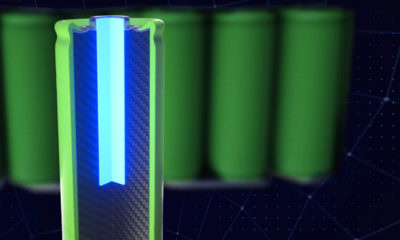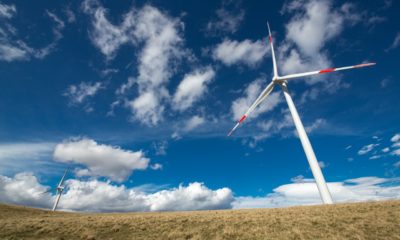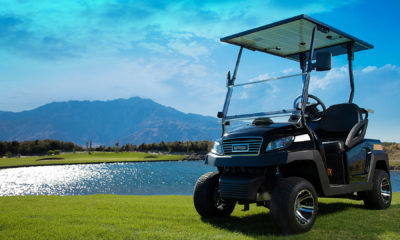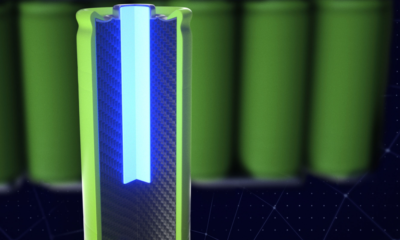Featured
Why Are Syncrude, Ledcor Group, and Ekati Mines So Excited about Triad Pro Innovators’ New EEL Diesel Hybrid Genset?
It’s understandable if the words ‘diesel hybrid genset’ don’t get your heart racing. But what if we throw in an EEL to make it EEL Diesel Hybrid Genset? Then we’d have something to get very excited about. Triad Pro Innovator’s most recent product launch (the EEL) has done just this for a bunch of major oil, gas, and construction companies operating in northern Canada like Syncrude and Ledcor.

For most people, diesel hybrid gensets are nothing to get excited about. In fact, many of us might not even know what a genset even is. (It’s a combination of an engine and a generator into a single unit.)
For some people, however, they are. When you’re working in mining, construction, oil and gas, or even just living in a remote community, then suddenly they take on a whole new level of importance.
For this reason, when Triad Pro Innovators, Inc. (OTC PINK: TPII) launched its new EEL Diesel Hybrid Genset, a whole lot of people sat up and took notice.
To understand why we’re first going to have to take a look at the problem a diesel hybrid genset solves. Then we’re going to have to understand their limitations. Only then, once we have this background in place, will we be able to answer the question: why are Syncrude, Ledcor Group, and Ekati Mines so excited about Triad Pro Innovators’ new EEL Diesel Hybrid Genset?
A Matter of Efficiency: The Problem with Bare Naked Gensets
Think about the way electricity is typically used. At home, you might have the TV on and be cooking in the kitchen. While you’re just cutting up vegetables with a knife, the only things consuming electricity might be the TV and some lights.
But then what happens when you turn on the mixer and maybe put something into the microwave at the same time? Suddenly, energy usage spikes.
Usually, the only way you can get away with these peaks and troughs in energy consumption is by having excess capacity available. Your electricity circuits must be designed to handle the maximum anticipated load, even if they rarely need to supply this much energy.
The same rule applies if it’s a diesel genset supplying this energy: the genset must sit semi-idly by, working at maybe 10-20% of its capacity.
While this doesn’t present any immediately obvious problems, it isn’t ideal. Gensets all have a band of maximum efficiency where they maximize the conversion of fuel energy into electrical energy. Operate outside of this band and fuel consumption per unit of electrical energy produced can rise dramatically.
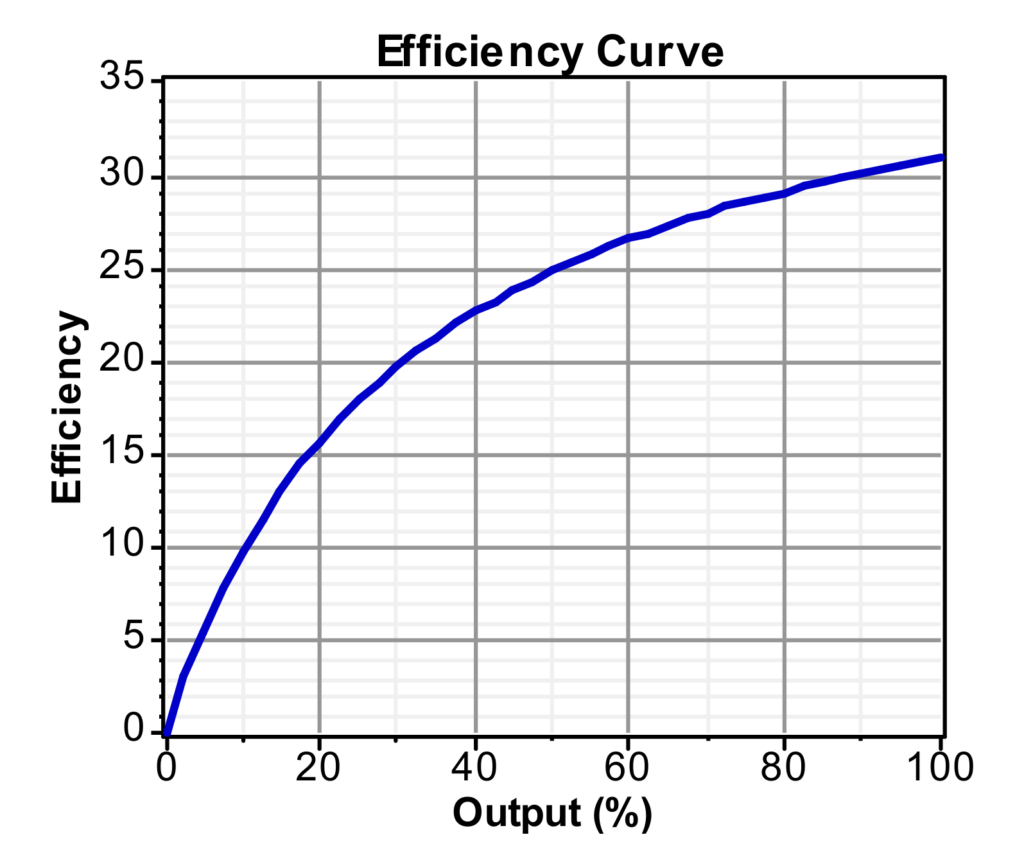
The above figure (taken from a feasibility study of energy storage systems in diesel/wind generators) shows the efficiency that a typical diesel genset has when converting latent energy stored in diesel fuel into electrical energy. As we can see, there is a dramatic drop-off in the efficiency of a diesel genset as electrical energy output decreases.
What this means in a typical diesel genset installation is that, aside from the times where the full generating capacity is being used (when you have all your electrical devices running), the genset is running with terrible efficiency.
Enter the Diesel Hybrid Genset: Run at 100%, Capture Excess Energy, and Win
Take the hybrid out of diesel hybrid genset and what do you have? An ordinary diesel genset. What makes it hybrid is the addition of an energy storage device, which is usually a battery bank. (Depending on the deployment, solar, wind, or another energy source can also be added to this arrangement, but that’s not important to this discussion.)
The reason we do this is because we know diesel gensets work most efficiently when they’re run at close to their maximum design output. So, by running at 100% capacity and storing excess energy production in a battery bank, we can shut down the genset and run off batteries for a while. Simple, and efficient!
The other advantage to this is that we can also shrink the size of the genset itself. If we can draw on the excess energy stored in the batteries to help meet peak energy consumption periods, we no longer need a giant genset just to meet momentary peaks.
This then spills over into even greater efficiency gains, resulting in a system that can be up to 90% more efficient than a standard diesel genset, depending on the application.
Two Big Problems with Standard Diesel Hybrid Gensets
While diesel hybrid gensets are a great idea, they’ve also typically come with a couple of major drawbacks.
The first of these is battery life. Just like most other devices, diesel hybrid gensets typically use batteries based on technologies like lithium-ion or lead-acid. As we know, these batteries come with limited lifespans that, at best, measure in the low-thousands of discharge-recharge cycles. In a system that’s being discharged/recharged multiple times per day, this can result in ongoing (and expensive) battery replacements throughout the life of the genset.
The second major problem is that normal batteries aren’t designed to operate in extreme temperatures. For example, at -10°C lithium and lead-acid batteries can only deliver 80% and 8% of their rated power, respectively.
While the lithium result might not look that bad here, this is really reaching the limits. Any colder than this and performance drops off quickly. What’s worse is the risk of battery cell damage caused by the varying reactions of different materials near, or below freezing temperatures. This can result in the battery internals literally cracking as materials expand and contract at different rates.
What this means in real terms is that commercial and residential operators in cold climates — like the northernmost two-thirds of Canada — cannot benefit from traditional diesel hybrid gensets. The batteries would not only be rendered useless during the depths of winter, but would also run the risk of destruction from freezing.
The Triad Pro eCell Solves the Battery Problems in Diesel Hybrid Gensets
A relatively new energy storage system on the market, the Triad Pro eCell, offers one of the most pragmatic solutions to the above problems. By using solid-state technology in the place of volatile chemicals as the majority of batteries do, the problems with degradation and freezing all but disappear.
The result is an energy storage system whose lifespan reaches tens-of-thousands of discharge-recharge cycles. What’s more, with the materials remaining stable in extreme cold conditions, the eCell continues to perform in extreme climates without significant reductions in performance, or the risk of damage.
The obvious implication here is that the eCell solves the problems that diesel hybrid gensets have. By replacing lithium-ion or lead-acid batteries with eCell units of similar capacity, the energy saving benefits can now extend to communities and commercial operators where extreme cold is a reality of life.
Syncrude, Ledcor Group, and Ekati Mines Sit up and Take Notice
For anyone familiar with operations like the Ekati diamond mines or Syncrude’s oil sands, the answer to the title question is probably already obvious. These are all operations in the northern reaches of Canada where even the maximum temperatures can stay below those where batteries break down. And they’re all in remote areas where the only way to access power is to generate it yourself.
For this reason, when Triad Pro Innovators, Inc. developed its new EEL Diesel Hybrid Genset, many companies operating in these sorts of climates sat up and took notice. The eCell unit in the genset solved some major problems, representing a breakthrough so big that it effectively created a whole new market for diesel hybrid gensets.
What really stands out in these scenarios, however, is that the fuel and battery savings are compounding. Many of these operations are so remote that just bringing in supplies can be a major expense. Every liter of fuel has to be transported in — often by plane — meaning the savings extend well beyond the raw cost-per-liter of the diesel used in the genset.
What’s Next for Triad Pro Innovators, Its eCell, and the EEL Diesel Hybrid Genset?
While the EEL Diesel Hybrid Genset represents a major advancement in the world of diesel hybrid generators, it is just one small step in a much bigger picture for Triad Pro Innovators. While the company reports it intends to continue demonstrating the genset to more future customers, its core business is its proprietary eCell technology.
This patent-pending energy storage technology at the heart of the EEL extends well beyond diesel hybrid gensets. In fact, its advantages over traditional battery technology extend beyond those that make the EEL so special. Additionally, the eCell also benefits from ultra-rapid charging (which is, theoretically, only limited by the capacity of the source to deliver energy), and is also 100% recyclable owing to the materials used in its construction.
Ultimately, while the EEL Diesel Hybrid Geset represents something a handful of communities and operators can get excited about, there’s a lot more to the Triad Pro story. For the rest of us, it’s only a matter of time until its eCell is ready for licensing in, let’s say, ultra-fast charging electric vehicles. And when that day arrives, we’ll all have something to get very excited about, too.
__
(Featured image by ksuku via Pixabay)
DISCLAIMER: This article was written by a third-party contributor and does not reflect the opinion of Born2Invest, its management, staff, or its associates. Please review our disclaimer for more information.
This article may include forward-looking statements. These forward-looking statements generally are identified by the words “believe,” “project,” “estimate,” “become,” “plan,” “will,” and similar expressions. These forward-looking statements involve known and unknown risks as well as uncertainties, including those discussed in the following cautionary statements and elsewhere in this article and on this site. Although the Company may believe that its expectations are based on reasonable assumptions, the actual results that the Company may achieve may differ materially from any forward-looking statements, which reflect the opinions of the management of the Company only as of the date hereof. Additionally, please make sure to read these important disclosures.

-

 Markets1 week ago
Markets1 week agoCocoa Prices Drop Amid Speculative Selling and West African Supply Concerns
-

 Cannabis1 week ago
Cannabis1 week agoIs Aurora Cannabis Stock a Risk Worth Taking?
-

 Impact Investing2 weeks ago
Impact Investing2 weeks agoEU Eases CO2 Tax Burden on SMEs with Revised CBAM Rules
-

 Fintech2 days ago
Fintech2 days agoRobinhood Expands to Europe with Tokenized Stocks and Perpetual Futures


